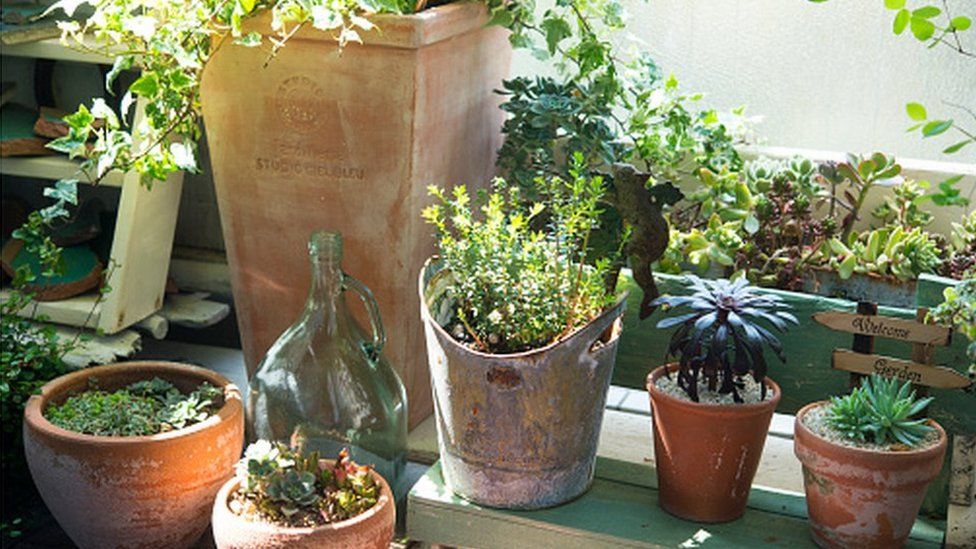Researchers seek evidence on gardens and well-being
- Published

A project aims to investigate the social case for gardens and what impact they have on health and well-being.
There is growing evidence for the environmental and health benefits of gardens and gardening.
Access to green spaces has been linked to reduced depression, anxiety and stress, as well as physical benefits.
Researchers at the University of Sheffield want to compile evidence on the therapeutic effects of gardens from the public.
"There's increasing evidence that access to green space in nature can provide a range of benefits in mental health, physical health and social cohesion," said Lauriane Suyin Chalmin-Pui, a PhD student at the University of Sheffield.
"But most of that evidence is centred around public green spaces rather than private gardens. That's the gap in knowledge - the contributions private gardens make to the health and well-being agenda. "
As part of the research, gardeners and non-gardeners are being asked to complete a survey.
Paved over
The aim is to investigate the benefits of having a front garden filled with plants compared with one without any.
Nearly one in four front gardens in the UK is completely paved over.
"Participating in this research, in terms of the wider picture, everyone will be part of what can hopefully be - depending on the results, of course - part of the evidence needed to bolster the social case for more green spaces and gardens in cities," she added.
"That argument will hopefully be able to act in concert with the environmental ecosystem benefits, which we already know."
The ecological benefits of gardens are well-known. They include resilience to local flooding, habitat for wildlife and benefits for air quality.
More recently, researchers have started compiling evidence for the effects of green spaces and gardens on well-being.
This will be used to inform health and planning policy.
The research is being carried out in collaboration with the Royal Horticultural Society.
- Published4 July 2016
- Published13 June 2016
- Published30 October 2015
- Published17 October 2015
- Published8 July 2015